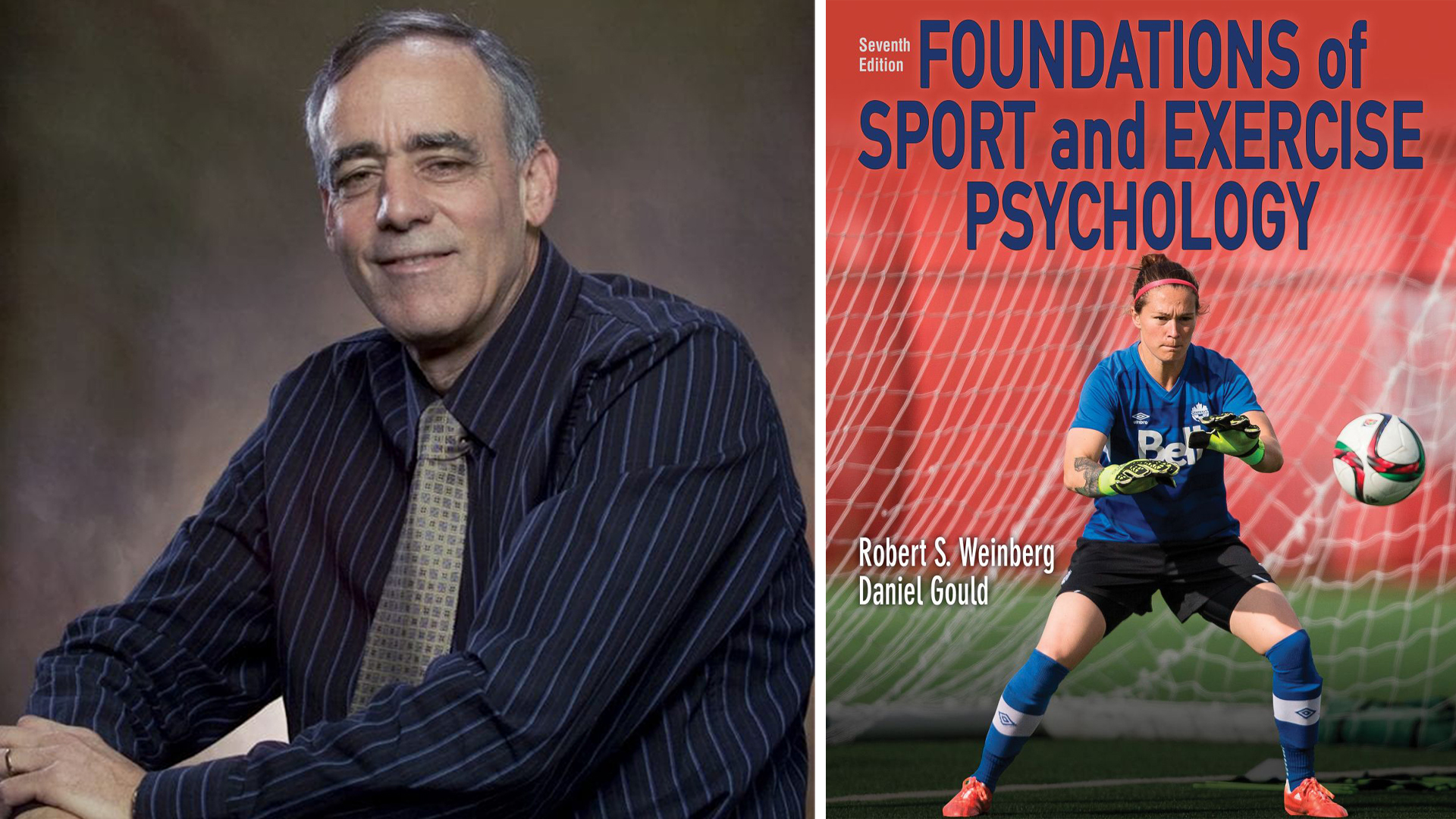After Decades of Pioneering Work, Sport Psychology Professor Robert Weinberg Retires

James M. Loy, Miami University
When Robert Weinberg, Miami University professor of sport psychology, announced his retirement, messages of admiration and appreciation poured in from friends, colleagues, and former students everywhere.
They spoke about his pioneering work that helped establish an entire field. They offered sincere congratulations on the remarkable achievements that made him an internationally renowned scholar. They reminisced about the long career that became a cornerstone of Miami’s department of sport leadership and management (SLAM).
 However, what they all expressed most, especially his former students, was gratitude -- true gratitude for his years of guidance and support.
However, what they all expressed most, especially his former students, was gratitude -- true gratitude for his years of guidance and support.
“It's very touching,” Weinberg says. “They all talk about the mentoring, and the high expectations, and that I really helped them be the best they could be. I pushed them because I thought they were smart enough to do it.”
It’s clear why so many would value Weinberg’s mentorship and influence so deeply. Across the last four decades, he’s been a towering figure in the field of sport psychology, and his accomplishments stretch on nearly without end.
Named as one of the top 10 sport psychologists in North America, Weinberg has published over 150 scholarly articles, over 40 book chapters, nine books, and according to Google Scholar his work has been cited over 20,000 times.
He is also the co-author of the seminal textbook, Foundations of Sport and Exercise Psychology. Now in its 7th edition, and with an all-new 8th edition on the way, the book is the most popular sport and exercise psychology textbook of all time.
“From a research perspective, and from people studying the field, no doubt my biggest impact is this textbook,” Weinberg says. “Almost all the undergraduates around the world will say that was their first exposure to sports psychology.”
Weinberg’s influence has even helped legitimize and popularize the field far beyond academia as well.
Today, the principles of sport psychology, including how to deal with pressure, find focus, raise confidence, stay motivated, cope with failure, and build mental toughness are used by coaches and athletes at nearly every level. Increasingly, many other organizations, industries, and professionals are also beginning to embrace these skills.
 “Over the years, when I used to speak to people about sport psychology, they really didn't know what it was,” he says. “But we went from a research focus to real application. Now we do things internationally, and multidisciplinary, and really combine psychology and sport science. Those are just some of the ways we have developed over the last 30-40 years.”
“Over the years, when I used to speak to people about sport psychology, they really didn't know what it was,” he says. “But we went from a research focus to real application. Now we do things internationally, and multidisciplinary, and really combine psychology and sport science. Those are just some of the ways we have developed over the last 30-40 years.”
In fact, 40 years ago, the field was virtually non-existent, and around that time, Weinberg almost found himself on a different path.
“If someone asked me what profession I wanted to pursue in college, I first would have said accounting, and then physical education,” he says. “But through the efforts of a couple of faculty members, I decided to go to graduate school at UCLA, and found my passion combining my love for sports and my strong interest in psychology.”
The guidance and support that Weinberg once received is among the reasons why student mentorship has maintained such a powerful presence throughout his own career.
It’s also one of the inspirations behind the new Robert Weinberg Sport Psychology Graduate Student Fund, which will be available to Miami SLAM graduate students.
“I thoroughly enjoyed my time in higher education for a variety of reasons, but foremost was my relationship to my graduate students,” Weinberg says. “My graduate students always kept me on my toes and it was a total pleasure to be able to work with, mentor, and advise so many over the years.”
 Weinberg is committed to making the new annual award an endowed fund, and anyone who wishes to donate can do so as well (see details below). It will provide financial assistance for books, software, conferences, workshops, and a variety of other professional development opportunities.
Weinberg is committed to making the new annual award an endowed fund, and anyone who wishes to donate can do so as well (see details below). It will provide financial assistance for books, software, conferences, workshops, and a variety of other professional development opportunities.
The goal is not only to help support and inspire a new generation of SLAM students. It is also a way to honor Weinberg’s enduring legacy.
It marks another milestone for the dedicated professor that so many students -- many of whom have gone on to become successful practitioners and even professors themselves -- will never forget.
“I was a student of yours in 2002, and here we are now,” Sam Morris, a SLAM faculty member, said in his message honoring Weinberg’s retirement. “I remember your name was on the front of the book, and in back of every article. You seemed to know everything. It was awesome.
“We love you. We'll miss you.”
Donate to the Robert Weinberg Sport Psychology Graduate Student Fund. In the "Designations," select the "Give to area of your choice," select "Other Fund," and type in Weinberg Fund 5886-001 in the "Comments or additional gift details" field.

